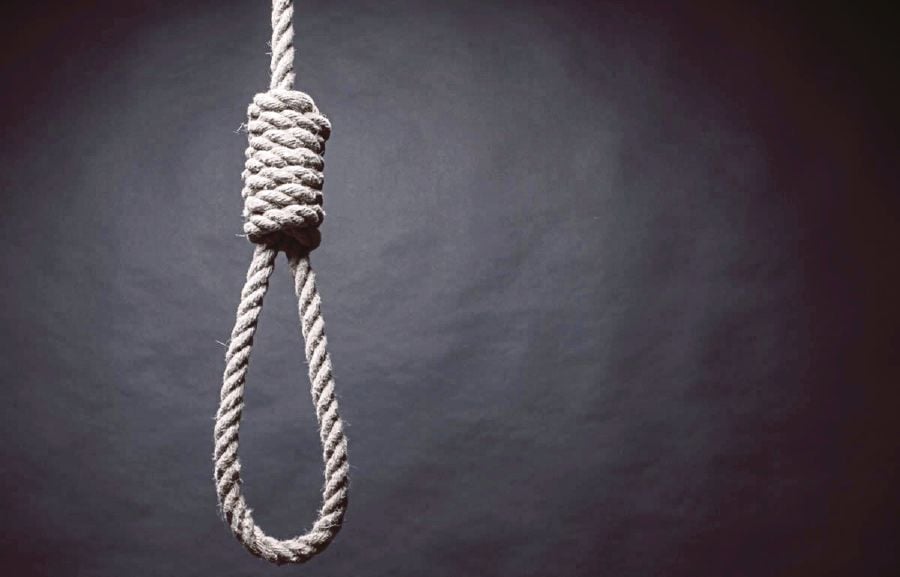An end to mandatory death penalty?

According to the Prisons Department, some 800 people are now on death row after being convicted of drug trafficking.
UNDER
Malaysian law, capital punishment (the death penalty) is mandatory for
the crime of murder, drug trafficking, kidnapping and several other
offences. Since 1992, at least 651 convicted persons (Malaysians) have
been given the death penalty, most of them for drug trafficking.
According to the Prisons Department, some 800 people
are now on death row after being convicted of drug trafficking under
Section 39B of the Dangerous Drugs Act 1952. A minister in the Prime
Minister’s Department said recently that the act will be amended to
“give back” the discretionary power to the trial judge at the end of a
drug trafficking case.
Welcoming this new move by the government, an executive
director of Amnesty International Malaysia was quoted as saying that
whilst the proposed amendment is only in respect of drug trafficking,
she hopes it will become “a first step towards total abolition”.
Bar Council Human Rights Committee co-chairman Andrew Khoo
called upon the government “to repeal all mandatory death sentences”,
adding that the sentence “robs judges of the opportunity to exercise
their discretion” to hand down a punishment that fits the circumstances
and gravity of each particular case.
Not everyone shares the view that the mandatory death
penalty for drug trafficking should be scrapped. A former Federal Court
judge was quoted as saying that the status quo should remain because
abolishing it might see an increase of such crimes in the future.
“Although the death penalty has not reduced such cases in
the past, removing it will only cause the number of cases to spike
drastically,” he had said.
The former judge (who was once a prosecutor in the
Attorney-General’s Chambers) strongly believes that the mandatory death
sentence is a deterrent, and scrapping it “will only embolden” more
criminals.
If the mandatory death sentence is to be replaced with
a mandatory life sentence, the Malaysian government will have to bear
the financial burden of looking after the welfare of these convicts in
prison for the rest of their lives. Should our taxpayers be burdened by
this? Furthermore, as said by Amnesty International, there is no
evidence in the world to show that the death penalty can be a deterrent.
Also, if the 1952 act is amended, and convicted drug
traffickers no longer face the mandatory death penalty, a trial judge
may (after considering the circumstances of the case and the gravity of
the offence) still apply his judicial discretion in imposing the death
penalty on him.
The amendment therefore, repeals the “mandatory nature” of
the punishment, but it does not deprive the trial judge of his judicial
power to impose such a capital punishment on the convicted person. In
short, the proposed amendment is still a far cry from the total
abolition of the death penalty for all crimes.
Under Malaysian law, the death penalty can still be
handed down by a trial judge upon conviction of an accused charged with
any of the following offences:
WAGING or attempting to wage war against the Yang di-Pertuan Agong, a ruler or Yang di-Pertua Negeri (Section 121 of the Penal Code);
OFFENCES against the person of the Yang di-Pertuan Agong, Ruler or Yang di-Pertua Negeri (mandatory, Section 121A of the Penal Code);
COMMITTING terrorist acts resulting in death (mandatory, Section 130C of the Penal Code);
MURDER (mandatory, Section 302 of the Penal Code);
KIDNAPPING or abducting in order to murder (Section 364 of the Penal Code);
HOSTAGE-TAKING resulting in death (mandatory, Section 374A of the Penal Code);
RAPE resulting in death (Section 376(4) of the Penal Code);
GANG-ROBBERY with murder (Section 396 of the Penal Code);
DRUG trafficking (mandatory, Section 39B of the Dangerous Drugs Act 1952);
DISCHARGING a firearm in the commission of an offence (mandatory, Section 3 of the Firearms (Increased Penalties) Act 1971); and,
ABDUCTION, wrongful restraint or wrongful confinement for ransom (Section 3(1) of the Kidnapping Act 1961).
Official statistics (released by the police Narcotics
Division) revealed that despite the mandatory death penalty for drug
traffickers, the number of drug trafficking cases in the country
continued to increase. From 1990 to 2011, the number of persons arrested
for drug trafficking increased from 744 to 3,845. The escalating
figures showed clearly that the mandatory death penalty law has not
achieved the aim of eradicating the drug menace. In March 2012, then
home minister Datuk Seri Hishammuddin Hussein told Parliament that the
mandatory death penalty has failed to stem the drug trade in Malaysia.
Under the original provisions of Section 39B,
conviction for drug trafficking does not entail a mandatory death
penalty. At the end of the trial and upon conviction of the accused, the
trial judge has the discretion to impose whatever penalty he deems fit
in accordance with the circumstances of the case and the gravity of the
crime. He can hand down a prison term (say 5 to 10 years), a life
sentence or the death penalty.
After the law was amended in 1983, this judicial discretion
was removed and the trial judge must, after convicting the accused
under Section 39B(1), give him the death penalty under Section 39B(2).
The Death Penalty Information Centre website stated that
104 countries have abolished the death penalty for all crimes. Malaysia
is one of 57 countries, where the death penalty is retained for
ordinary crimes. In the Asean region, only two countries have abolished
the death penalty — Cambodia (1989) and the Philippines (2006).
Even though the mandatory aspect of the death penalty
for drug trafficking may soon be scrapped, we are still a long way from
abolishing capital punishment in this country.
SALLEH BUANG formerly served the Attorney-General’s Chambers before he left for practice, the corporate sector and, then, the academia.





No comments:
Post a Comment